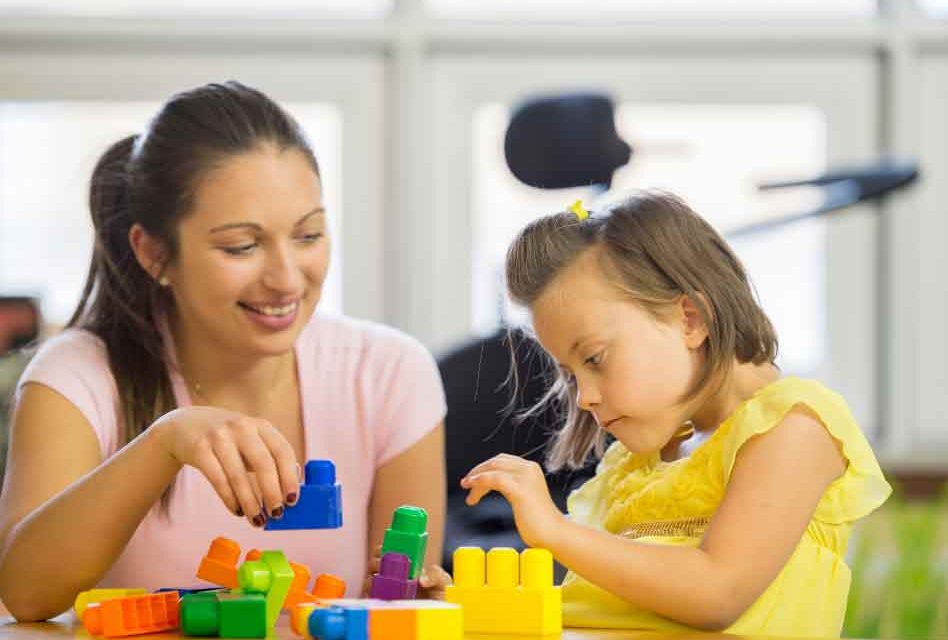Support Groups: Helping Parents Navigate Through Loss
Coping with loss as a parent is tough, but support groups offer comfort and understanding. You’ll find solace in shared experiences and gain coping strategies. Connect with others to feel less isolated and build a supportive community. Embrace a safe space for expressing emotions openly. By focusing on moving forward with hope, you can begin the healing process. Remember, you don’t have to face this journey alone.
Key Takeaways
- Support groups offer coping strategies and emotional validation for parents grieving the loss of a child.
- Shared experiences in groups ease feelings of isolation and provide empathy and support.
- Creating a safe space for expression in groups fosters healing and understanding.
- Building a supportive community helps parents find comfort and strength during their grief journey.
- Moving forward with hope is emphasized in support groups, aiding in the healing process.
Understanding the Grieving Process

If you’re struggling to comprehend the stages of grief, joining a support group can provide insight and comfort during this challenging time. When dealing with parental loss, it’s important to understand that grief is a unique process for everyone.
The stages of grief, as famously outlined by Elisabeth Kübler-Ross, include denial, anger, bargaining, depression, and acceptance. These stages aren’t linear and can often overlap or repeat as you navigate through your emotions.
Losing a parent can evoke a range of intense feelings, from profound sadness to anger and confusion. It’s essential to acknowledge and work through these emotions rather than suppressing them.
Benefits of Joining Support Groups
When you join a support group, you gain access to shared coping strategies that can help you navigate your grief journey.
Being in a group where others understand your emotions provides a sense of emotional validation that can be incredibly comforting.
Additionally, the support and empathy you receive from fellow group members can help alleviate feelings of isolation and provide a safe space to express your feelings.
Shared Coping Strategies
Consider incorporating shared coping strategies from support groups to discover new ways of managing the challenges of dealing with loss as a parent. Group therapy and peer support play vital roles in helping parents navigate through their grief.
In these support groups, you can learn coping mechanisms that others have found effective, providing you with a toolkit of strategies tailored to your needs.
In group therapy sessions, you can benefit from the collective wisdom and experiences of others who are going through similar struggles. Sharing coping strategies in a supportive environment can offer fresh perspectives and practical solutions.
Peer support further reinforces the idea that you aren’t alone in your journey and that others understand your pain.
Emotional Validation and Support
Explore the benefits of joining support groups, where emotional validation and support can provide you with a sense of understanding and connection during your journey of dealing with loss as a parent.
In these groups, you’ll find peer connections that can be invaluable as you traverse the complexities of grief. By engaging with others who are on a similar grief journey, you may discover a profound sense of emotional healing through shared experiences and empathy.
Group therapy within these support groups offers a safe space for you to express your feelings openly and honestly. The validation and support you receive from others who’ve walked a similar path can be incredibly comforting and reassuring.
Knowing that you aren’t alone in your struggles can help alleviate feelings of isolation and provide a sense of community during a difficult time.
Embracing emotional validation and support in a support group setting can’t only aid in your healing process but also foster a sense of belonging and understanding that’s essential for traversing the challenges of parental loss.
Finding Comfort in Shared Experiences

By connecting with others who’ve also experienced loss, you can find solace in shared experiences and mutual understanding. In support groups, the act of sharing stories with individuals who’ve gone through similar challenges can be incredibly comforting. Hearing how others have navigated their grief, coped with their emotions, and found moments of peace can provide a sense of validation and hope. Knowing that you aren’t alone in your feelings and struggles can lighten the burden you carry.
In these shared spaces, you might discover that your experiences, though unique to you, resonate with others on a profound level. This connection can create a bond that transcends words, offering a form of support that’s deeply empathetic and genuine. Through listening to others’ journeys and sharing your own, you may find a sense of community that nurtures healing and growth.
Embracing the collective strength of those who understand your pain can be a powerful source of comfort as you navigate the complexities of loss.
Tools for Coping and Healing
As you navigate through the complex emotions of loss, it’s essential to equip yourself with effective coping strategies and healing resources. These tools can provide you with the support needed to navigate the grieving process and find solace in shared experiences.
Coping Strategies for Parents
In facing the profound emotional challenges of coping with loss, parents can benefit greatly from employing a variety of practical coping strategies aimed at facilitating healing and resilience. Parental self-care plays an essential role in maneuvering through the complex emotions that arise from grief. It’s vital to prioritize activities that promote emotional healing, such as engaging in hobbies, seeking therapy, or participating in support groups.
Coping mechanisms like journaling, exercising, or practicing mindfulness can provide parents with a healthy outlet to process their feelings and manage stress. Seeking grief support from friends, family, or professionals can offer a valuable source of comfort and understanding during this difficult time.
Healing Resources and Support
Utilize a combination of healing resources and support systems to aid in your journey of coping and healing after experiencing loss as a parent. Grief counseling can provide you with a safe space to express your emotions and gain valuable insights into the grieving process.
Consider attending therapeutic workshops where you can learn coping mechanisms and connect with others who are also maneuvering through similar experiences. Online forums offer a convenient platform to share your feelings, seek advice, and find solace in a community of individuals who understand your pain.
Additionally, exploring healing retreats can offer you a serene environment to reflect, heal, and rejuvenate your spirit. These retreats often provide structured activities and guidance to facilitate your healing journey in a peaceful setting.
Breaking the Isolation of Grief

To overcome the overwhelming sense of loneliness that often accompanies grief, connecting with others who understand your experience can provide immense comfort and support. When maneuvering grief, seeking connection is crucial in breaking the isolation that can feel suffocating.
In these moments of deep sorrow, finding a community that empathizes with your pain can be a beacon of light in the darkness. By actively engaging with support groups or counseling services, you’re taking an important step towards overcoming isolation. These spaces offer a safe environment where you can share your feelings openly without fear of judgment.
Through shared experiences and mutual understanding, you may find solace in knowing that you aren’t alone in your journey through grief.
Professional Guidance and Resources
Consider seeking guidance from trained professionals and utilizing available resources to navigate the complexities of grief and loss effectively. Professional guidance can provide you with expert advice tailored to your specific needs, helping you cope with the challenges of grief in a healthy and constructive manner. Trained counselors or therapists can offer valuable insights and strategies to support you through this difficult time.
Additionally, online forums can be a valuable resource for connecting with others who are experiencing similar struggles. These forums provide a platform for sharing experiences, seeking advice, and finding comfort in a community of individuals who understand your pain.
Grief workshops are another useful resource that can offer structured guidance and support. These workshops often cover various aspects of the grieving process, providing practical tools and coping strategies to help you navigate through your journey of loss.
Creating a Safe Space for Expression
Establishing a safe and supportive environment for expressing your emotions can be vital in processing your grief and finding comfort during this challenging time. Creating a safe space where you feel heard, understood, and accepted can help you navigate through the overwhelming emotions that come with loss.
In a support group setting, confidentiality and respect are essential to make sure that you can freely share your thoughts and feelings without judgment.
Emotional expression is a critical aspect of healing from the pain of loss. By allowing yourself to open up and share your experiences with others who are going through similar struggles, you can feel validated and less alone in your grief journey.
It’s okay to feel a range of emotions, and having a safe space to express them can be incredibly cathartic.
Building a Supportive Community

Creating connections with others who understand your experience can provide invaluable support as you navigate the challenges of grief and loss. Building a supportive community is essential in fostering a sense of belonging and understanding during this difficult time.
Through community bonding, you can find solace in sharing your thoughts and emotions with individuals who’ve walked a similar path. These connections can offer emotional support and a safe space to express your feelings without judgment.
Emotional connection within a supportive community can help alleviate feelings of isolation and loneliness. By engaging with others who’ve experienced loss, you may find comfort in knowing that you aren’t alone in your journey. Sharing stories, insights, and coping strategies can create a network of support that uplifts and encourages you during moments of despair.
Reach out to local support groups, online forums, or counseling services to begin building your community of understanding individuals. Together, you can navigate through grief and loss, finding strength in unity and empathy.
Moving Forward With Hope
As you navigate through the journey of grief and loss, it’s vital to focus on moving forward with hope. The healing journey after experiencing loss can be incredibly challenging, but it’s important to remember that there’s always a path towards finding hope and light at the end of the tunnel.
Embracing support from others who understand your pain can provide a sense of comfort and strength as you move forward.
Finding hope in the midst of sorrow isn’t easy, but it’s possible. Allow yourself to grieve and feel all the emotions that come with loss, but also remember to look towards the future with optimism.
Frequently Asked Questions
How Can I Balance Grief With Everyday Responsibilities?
Balancing grief with everyday responsibilities can be tough. Remember, coping strategies like taking breaks, seeking support, and being kind to yourself are crucial. Prioritize tasks, delegate when possible, and practice good time management.
Are There Virtual Support Group Options Available?
Yes, there are virtual meetings available for support groups. Many organizations offer online platforms where you can connect with others who understand your journey. These virtual options provide a safe space for sharing and healing.
Can Children Attend Support Group Meetings With Me?
Yes, children’s involvement in support group meetings can vary. Some groups welcome children, while others may have specific guidelines. It’s crucial to take into account group dynamics and the impact on both you and your child.
Is It Common to Feel Guilty for Seeking Support?
Feeling guilty for seeking support is common, but it’s important to remember that coping strategies and self-care are essential. Overcoming stigma and seeking help are signs of strength. Be kind to yourself during this difficult time.
What if I Don’t Feel Comfortable Sharing in Group Settings?
If you don’t feel comfortable sharing in group settings, consider individual counseling or online forums. Journaling can also be a helpful way to process your emotions. Remember to prioritize self-care and find what works best for you.
Conclusion
Joining a support group can provide you with a safe space to navigate through the challenging journey of loss. By connecting with others who understand your pain, you can find comfort, guidance, and a sense of community.
Remember, you aren’t alone in your grief. Take the step towards healing and reach out to a support group today. Together, you can move forward with hope and strength.

Hey there! 👋 I’m a proud mom and passionate writer, sharing my parenting journey. 📝 Join me as I navigate the ups and downs of motherhood, offering tips, advice, and a sprinkle of humor along the way. 🌟







